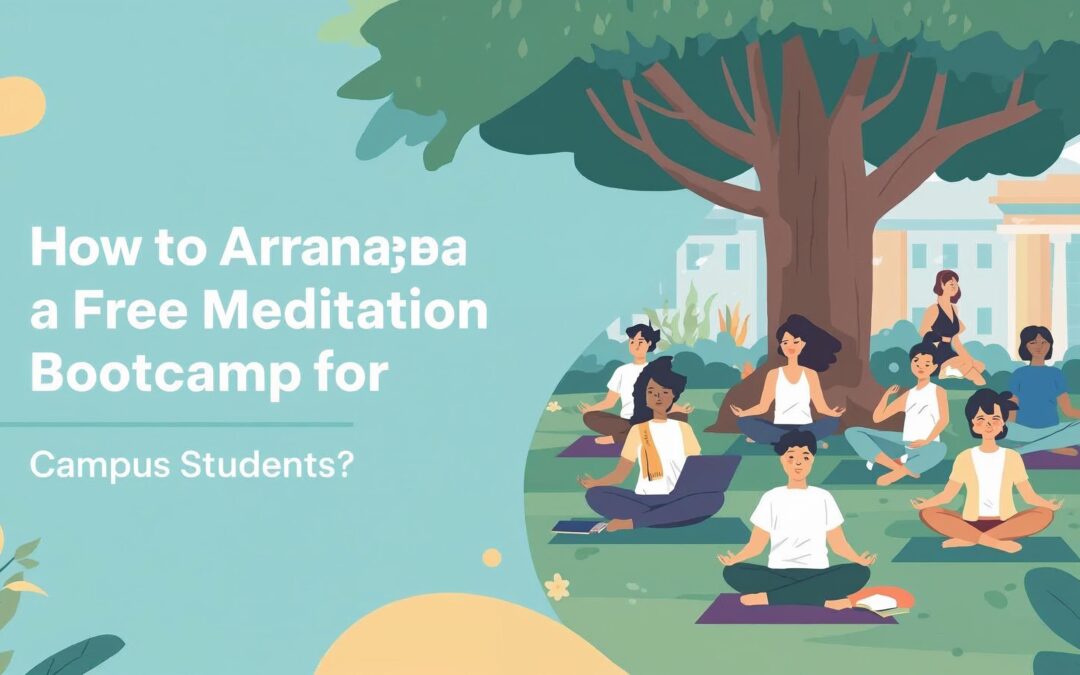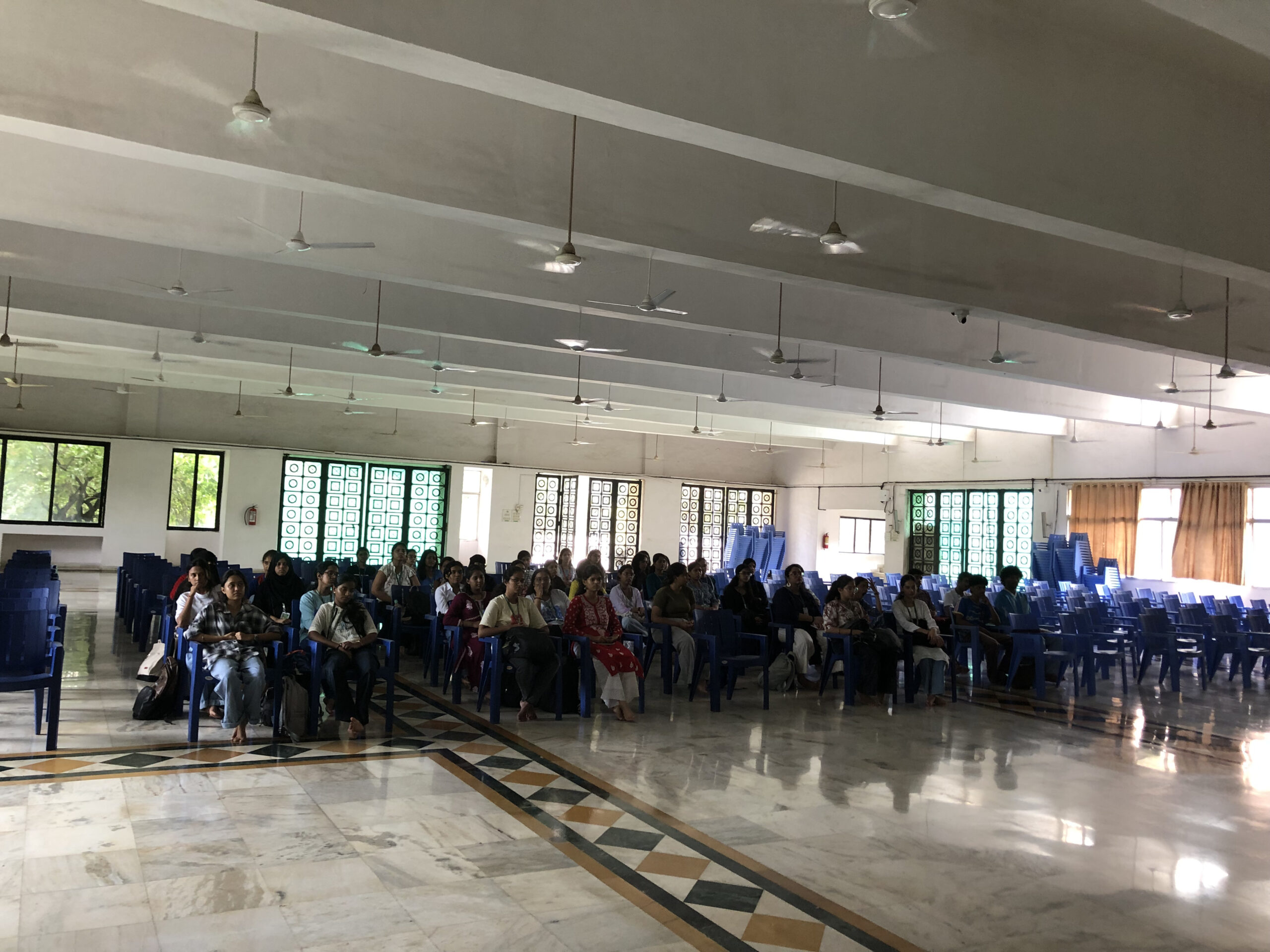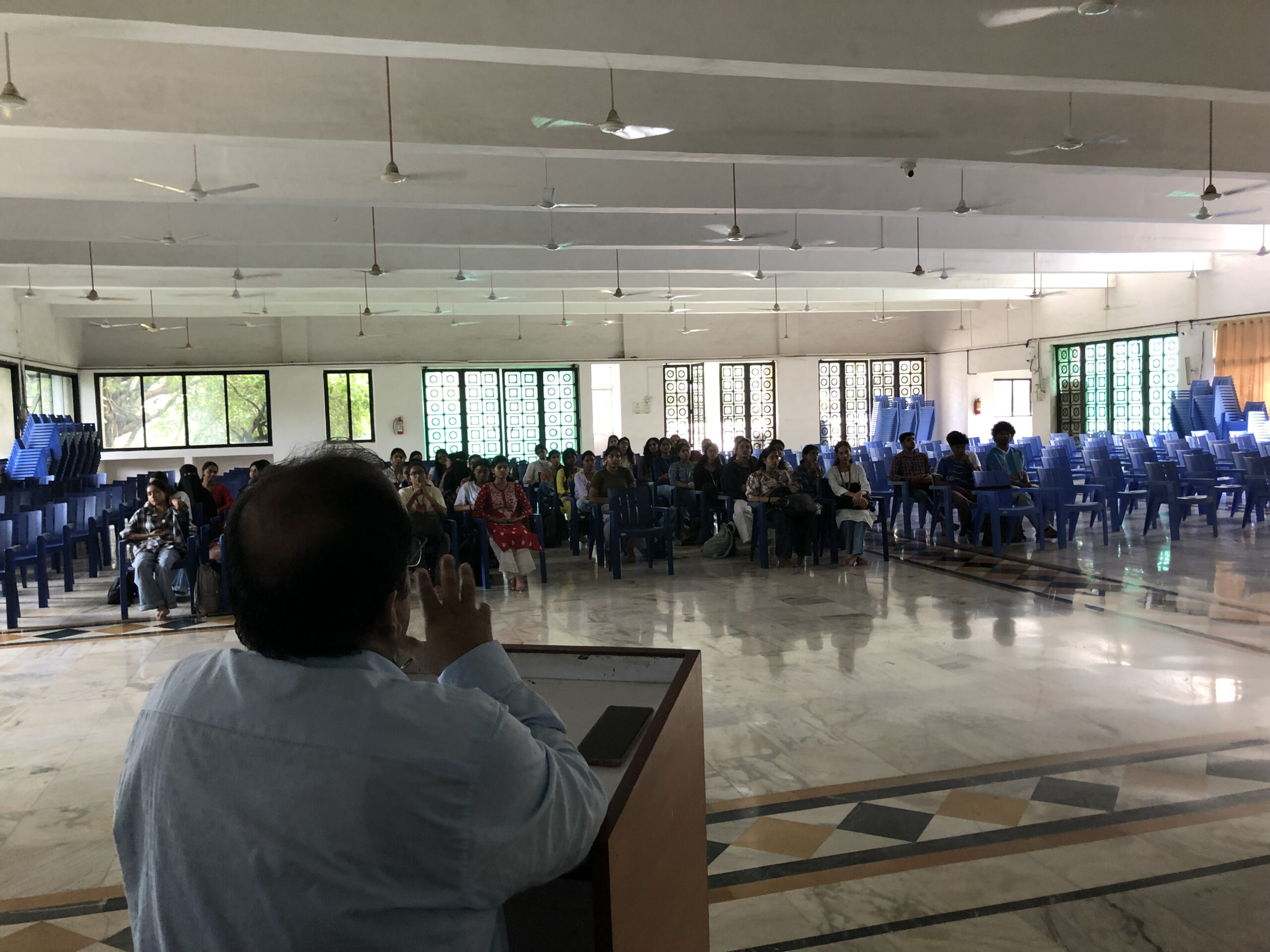Stress, deadlines, and the constant buzz of notifications—college life can often feel overwhelming. Introducing psychology sttudents to meditation at the right stage not only helps them cope with stress but also equips them with mindfulness practices that stay with them for life. One powerful way to do this is through a meditation bootcamp on campus.
Recently we had arranged a meditation seminar for psychology students under the social activity agenda. We picked the nearest meditation centre at our college to conduct this.
How everything under this is managed well is described in this blog
Why This Meditation Bootcamp Was Arranged?
– Apart from the social activity credits, it was for exposing the first year psychology students to actual spiritual experiences that college can’t deliver in classrooms
– Testing this meditation centre of how much effective their exercises are that can heal sutdent’s mental health issues. Accordingly more sessions can be arranged in future for other dept.
Step-by-Step Planning of the Meditation Bootcamp
Here’s how the entire event was structured:
1. Partnering with the Right Organisation
The first step was securing the support of a social organization that specializes in mindfulness and meditation workshops. This was possible because of Vidit Kamble (Head of Management Association – Pillai College – My Dearest Friend too) — who made it easier to collaborate.
2. Setting the Date and Time
A fixed date and time slot ensured smooth scheduling. The program was designed to fit into the academic calendar without clashing with regular classes or examinations.
3. Planning the Structure of the Session
The bootcamp included:
-
A brain exercise to energize participants.
-
A guided meditation session focusing on mindfulness practices.
-
Interactive experiences, where students reflected on how they felt during and after the session.

- A series of games conducted by Aarav Gupta (TY BBA Digital Marketing student) on 1-on-1 basis and driving the entire seminar after the 2nd half
This flow ensured students weren’t just listening passively but actively participating.
4. Coordination and Formalities
To make the event successful, several backend steps were taken:
-
Consultation with organisers to agree on logistics and arrangements.
-
Clear communication with students about what they needed to bring (mostly just themselves, comfortable clothing, and an open mind!).
-
Flyer distribution across campus to spread awareness.
-
Psychology student involvement, as they co-facilitated and observed the session as part of their curriculum.
-
Acknowledgement letters and faculty coordination, ensuring the management and professors were aligned, while also collecting structured feedback for future improvements.
Outcomes and Feedback
The response from students, especially first-years, was overwhelmingly positive. Many shared that it was their first time experiencing meditation and found it refreshing compared to conventional lectures. Faculty appreciated the experiential approach, noting how it added real value to classroom learning.
Key Takeaways for Organising Your Own Bootcamp
-
Leverage networks – Personal connections with NGOs or organizations can ease collaboration.
-
Blend theory with practice – Let students experience mindfulness, not just study it.
-
Keep logistics simple – Focus on creating a calm environment; avoid overcomplications.
-
Include faculties and managers – Their involvement ensures credibility and long-term continuity.
-
Gather feedback – It makes the next event better and validates the initiative.
Conclusion
A meditation bootcamp doesn’t just offer a break from routine; it plants the seed of mindfulness in young minds. With careful planning, teamwork, and the right support, campuses can create deeply enriching experiences for their students.
If you’re considering organizing one in your institution, take inspiration from this model and start small—the impact can be truly transformative.



